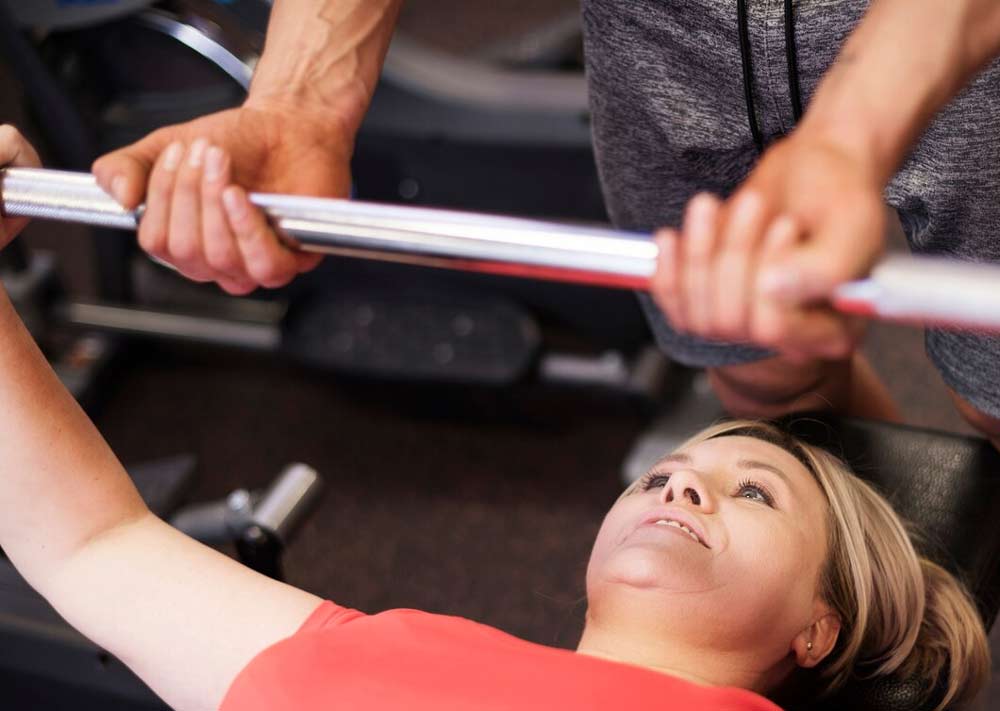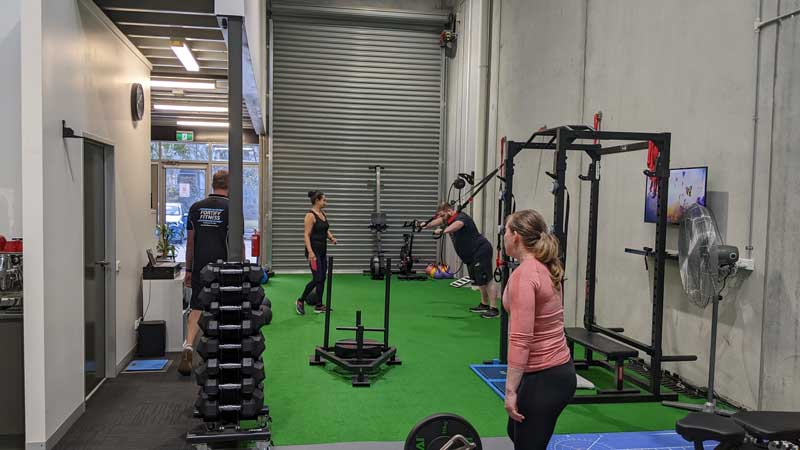Resistance training, also known as strength training or weightlifting, is a type of exercise that involves working against a force, such as gravity, to build muscle and improve overall fitness. There are many benefits to resistance training with an Exercise Physiologist, including:
- Increased muscle strength and endurance: Resistance training helps to build muscle and improve overall strength, which can make everyday activities, such as lifting groceries or climbing stairs, easier.
- Improved bone density: Resistance training helps to increase bone density, which can reduce the risk of osteoporosis and other bone-related conditions.
- Increased metabolism: Resistance training can help to increase muscle mass, which can lead to a higher metabolism and more calories burned at rest.
- Improved balance and coordination: Resistance training can help to improve balance and coordination, which can reduce the risk of falls and injuries.
- Reduced risk of chronic diseases: Resistance training has been shown to reduce the risk of chronic diseases such as heart disease, diabetes, and certain types of cancer.
- Weight loss: Resistance training can help to increase muscle mass and reduce body fat, leading to weight loss.
- Improved cardiovascular health: Resistance training can improve cardiovascular health by increasing cardiovascular endurance, lowering blood pressure and cholesterol, and reducing the risk of heart disease.
- Improved mental health: Resistance training has been shown to improve mental health by reducing symptoms of depression and anxiety, and improving overall mood.
- Increased flexibility: Resistance training can increase flexibility by stretching the muscles during exercise and helping to improve range of motion.
- Improved sports performance: Resistance training can help to improve sports performance by increasing strength, power, and speed.
- Reduced stress: Resistance training has been shown to reduce stress and improve overall well-being.
- Increased energy levels: Resistance training can help to increase energy levels and reduce fatigue.
- Increased insulin sensitivity: Resistance training has been shown to increase insulin sensitivity, which can improve glucose metabolism and reduce the risk of diabetes.
- Improved immune function: Resistance training can improve immune function by increasing the production of white blood cells and antibodies.
- Increased lung function: Resistance training can improve lung function by increasing the strength of the respiratory muscles.
- Improved sleep: Resistance training can improve sleep by helping to reduce insomnia and improve overall sleep quality.
- Reduced risk of injury: Resistance training can help to reduce the risk of injury by strengthening muscles and improving balance and coordination.
- Increased life expectancy: Resistance training can increase life expectancy by reducing the risk of chronic diseases and improving overall health.
- Increased sexual function: Resistance training has been shown to improve sexual function by increasing blood flow, muscle mass and overall confidence.
- Improved posture: Resistance training can improve posture by strengthening the muscles that support the spine and reducing the risk of back pain.
- Increased endurance: Resistance training can increase endurance by strengthening the muscles and improving cardiovascular fitness.
- Increased muscle tone: Resistance training can increase muscle tone by building muscle and reducing body fat.
- Reduced risk of falls: Resistance training can reduce the risk of falls by improving balance and coordination.
- Increased social interaction: Resistance training can increase social interaction by providing an environment of like-minded people.
- Increased self-confidence: Resistance training can boost self-confidence by helping individuals feel stronger and more capable in their daily lives.
- Increased overall fitness: Resistance training can improve overall fitness by working multiple muscle groups and improving cardiovascular health.
- Increased joint health: Resistance training can improve joint health by strengthening the muscles that support the joints and reducing the risk of injury.
- Increased ability to perform daily activities: Resistance training can improve the ability to perform daily activities such as lifting, carrying, and climbing stairs by increasing muscle strength and endurance.
- Reduced risk of metabolic syndrome: Resistance training has been shown to reduce the risk of metabolic syndrome, a group of risk factors that increase the likelihood of developing heart disease, stroke, and diabetes.
- Improved functional ability: Resistance training can improve functional ability by increasing muscle strength and endurance, which can help individuals perform daily activities more easily and independently.
It is important to note that resistance training should always be done under the guidance of a qualified professional such as an exercise physiologist, especially if an individual has any pre-existing health conditions or injuries. An exercise physiologist in Melbourne can help design an individualised resistance training program that is safe and effective for the individual’s specific needs and goals.
References:
- American College of Sports Medicine (ACSM). (2018). ACSM’s guidelines for exercise testing and prescription. Wolters Kluwer Health.
- American Council on Exercise (ACE). (2016). The benefits of resistance training.
- Rhea, M. R., Alvar, B. A., Burkett, L. N., & Ball, S. D. (2003). A meta-analysis to determine the dose response for strength development. Medicine & Science in Sports & Exercise, 35(3), 456-464.
- National Center for Biotechnology Information (NCBI). (2019). The effects of resistance training on health: a review of the literature. Journal of Sports Science & Medicine, 18(4), 738-749.
- American Council on Exercise (ACE). (2019). The benefits of resistance training for older adults.



